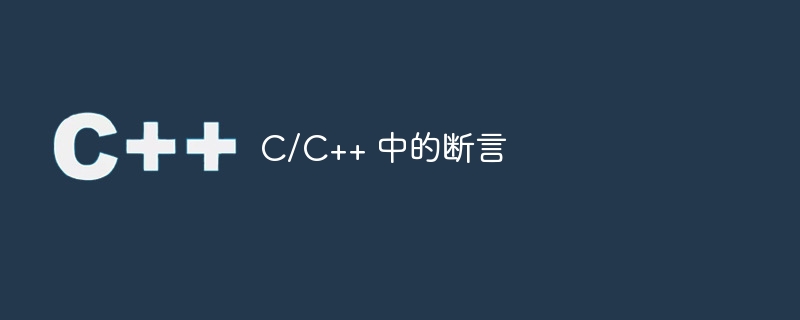Home >Backend Development >C++ >Assertions in C/C++
Assertions in C/C++
- 王林forward
- 2023-08-26 18:13:021351browse

Here we will learn what assertions are in C/C. The C library macro void assert(int expression) allows diagnostic information to be written to the standard error file. In other words, it can be used to add diagnostics to your C program.
The following is the declaration of the assert() macro.
void assert(int expression);
The argument to this assert() is an expression - this can be a variable or any C expression. If expression evaluates to TRUE, assert() does nothing. If expression evaluates to FALSE, assert() displays an error message on stderr (the standard error stream that displays error messages and diagnostics) and aborts program execution.
Sample code#include <assert.h>
#include <stdio.h>
int main () {
int a;
char str[50];
printf("Enter an integer value: ");
scanf("%d", &a);
assert(a >= 10);
printf("Integer entered is %d\n", a);
printf("Enter string: ");
scanf("%s", &str);
assert(str != NULL);
printf("String entered is: %s\n", str);
return(0);
}Output
Enter an integer value: 11 Integer entered is 11 Enter string: tutorialspoint String entered is: tutorialspoint
The above is the detailed content of Assertions in C/C++. For more information, please follow other related articles on the PHP Chinese website!
Related articles
See more- C++ compilation error: A header file is referenced multiple times, how to solve it?
- C++ compilation error: wrong function parameters, how to fix it?
- C++ error: The constructor must be declared in the public area, how to deal with it?
- Process management and thread synchronization in C++
- How to deal with data splitting problems in C++ development

